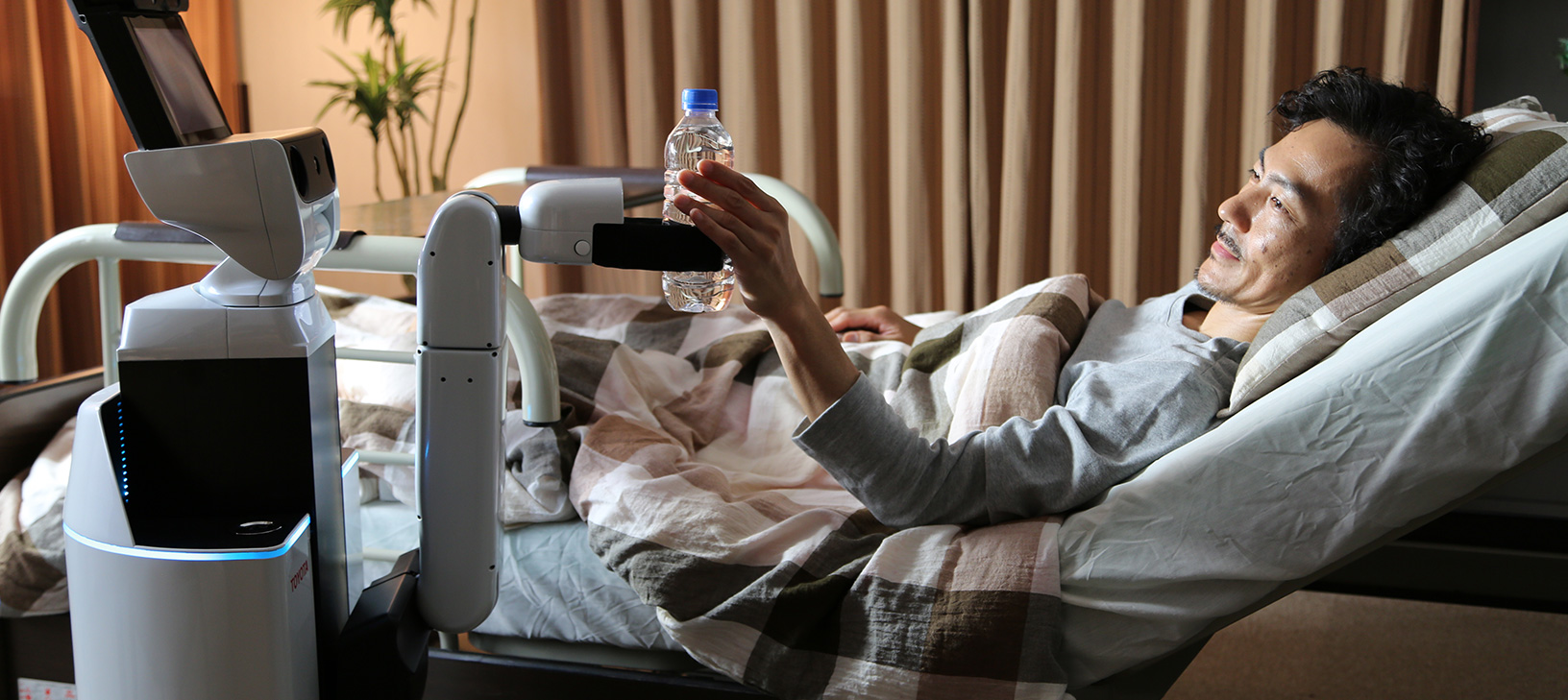Toyota is giving robot helpers more brains, but they’ll still suck for a while

A new Japanese research effort aims to use cutting-edge AI to deliver robots capable of assisting the elderly and people with disabilities.
What’s new: Toyota is teaming up with Preferred Networks, a Japanese AI company, to sprinkle a little intelligence over the assistive robots it’s currently working on. Toyota will loan several dozen human support robots (like the one shown above) to Preferred Networks, and the two companies will work together to make these service robots smarter and more useful.
Deep thoughts: Preferred Networks, founded in 2014, specializes in deep learning, the technology behind today’s big AI boom. The company’s algorithms are already employed in health-care imaging, industrial automation, and autonomous driving. The new research project is a sensible move, then—demand for assistive robots could be huge in Japan and elsewhere in coming years.
Messy stuff: But simply incorporating deep learning into robots won’t be enough to make them truly smart. Researchers are making progress on robotic learning, but it remains incredibly challenging for a robot to operate reliably in messy, real-world situations. Simply finding a cup and bringing it to your bedside, for example, may require a huge amount of adaptation and improvisation.
Thinking big: Toyota has made big investments in AI in recent years through the Toyota Research Institute and Toyota AI Ventures. The company is betting that advances in AI will make both home robots and autonomous driving practical. Progress in both areas might be gradual, but the payoffs could be huge.
Deep Dive
Artificial intelligence
Large language models can do jaw-dropping things. But nobody knows exactly why.
And that's a problem. Figuring it out is one of the biggest scientific puzzles of our time and a crucial step towards controlling more powerful future models.
Google DeepMind’s new generative model makes Super Mario–like games from scratch
Genie learns how to control games by watching hours and hours of video. It could help train next-gen robots too.
What’s next for generative video
OpenAI's Sora has raised the bar for AI moviemaking. Here are four things to bear in mind as we wrap our heads around what's coming.
Stay connected
Get the latest updates from
MIT Technology Review
Discover special offers, top stories, upcoming events, and more.